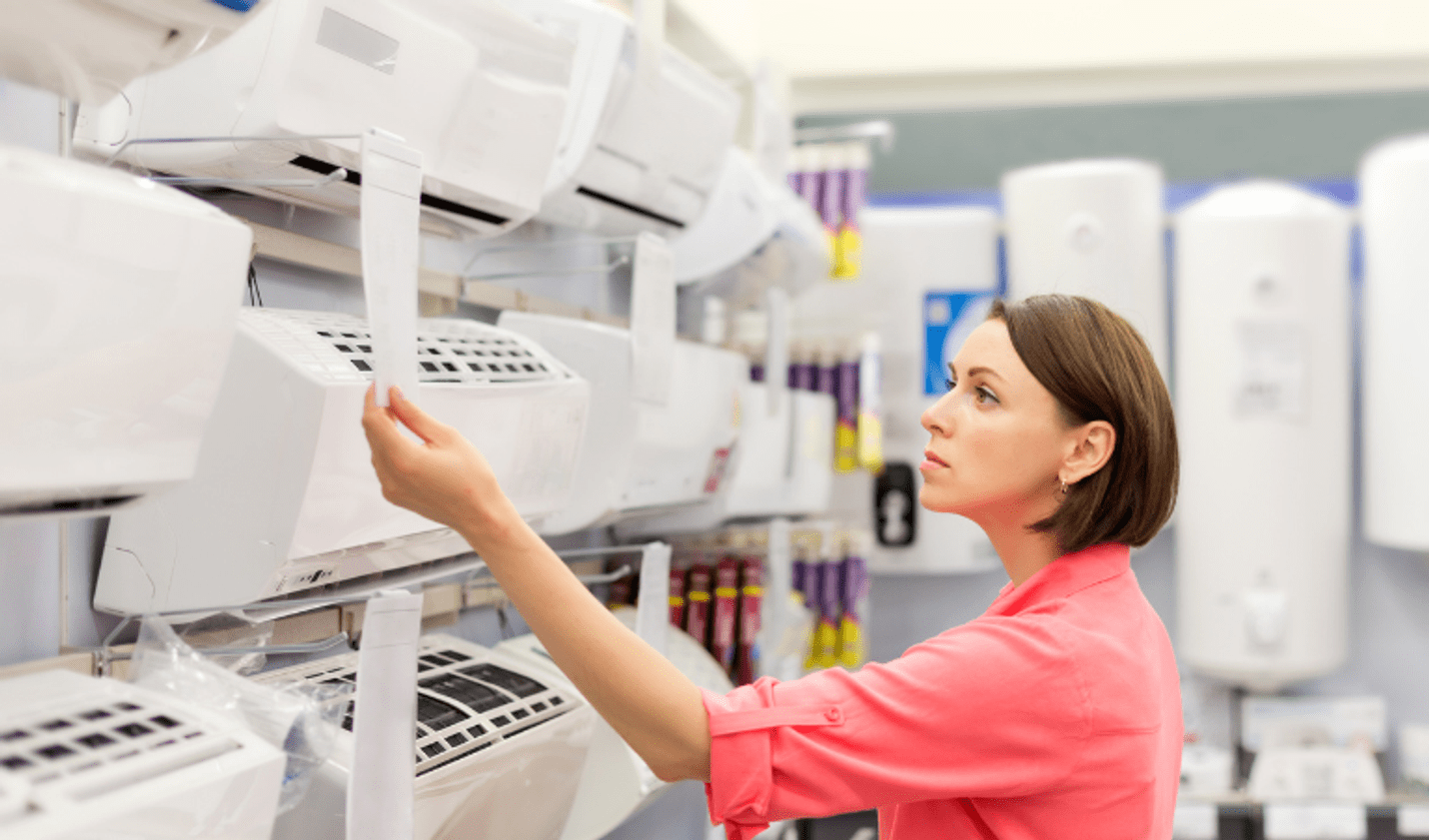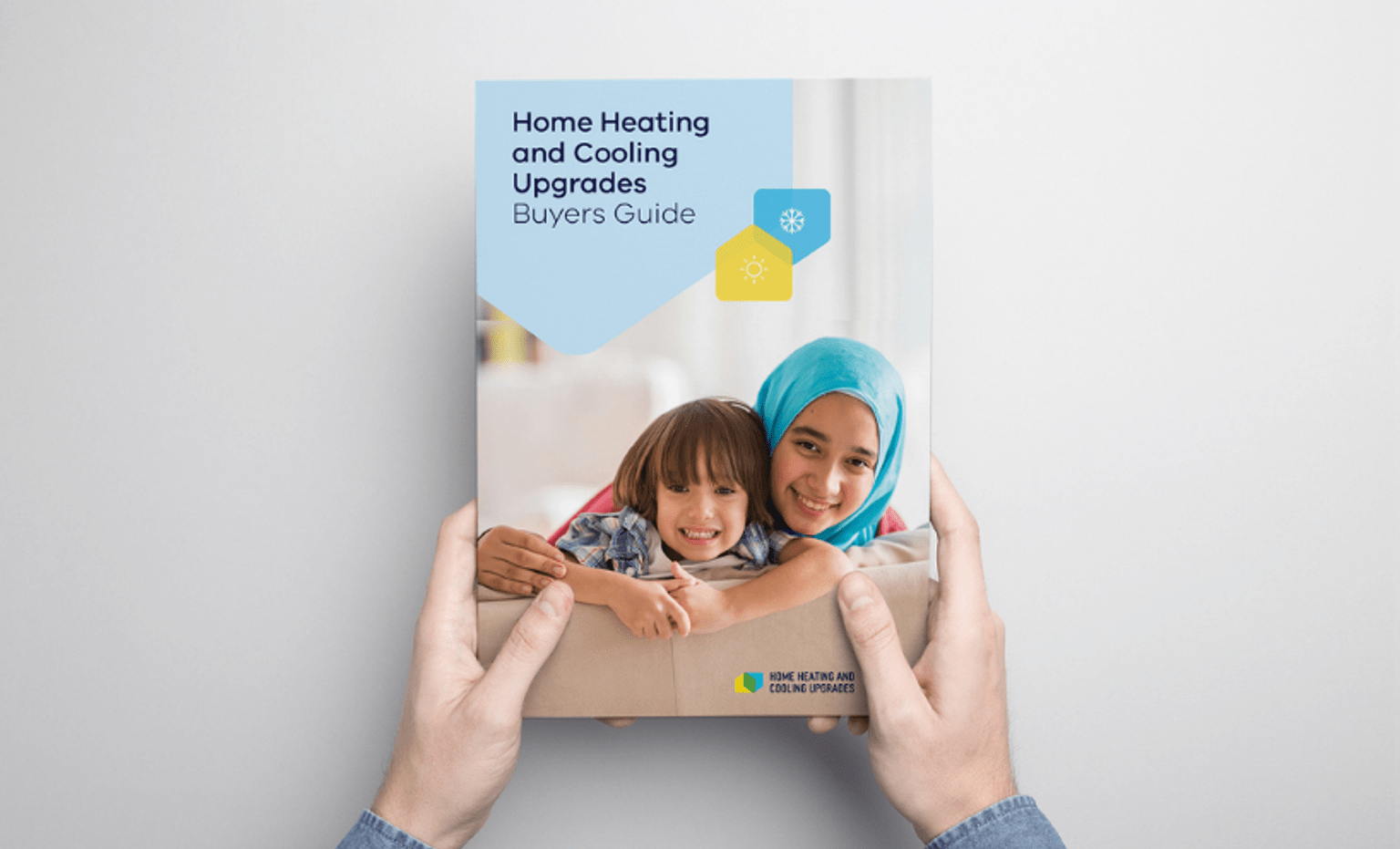An efficient heating and cooling system can help maintain your thermal comfort at home all year round.
If you’re considering upgrading to an energy-efficient reverse-cycle air conditioner (RCAC), it’s important to understand how to read the key specifications and ratings of different models on the market before making a purchase.
Here are a few concepts to be aware of when comparing different model types:
- The size of a reverse cycle air conditioner unit refers to its kilowatt (kW) measurement capacity, not the physical size of the unit.
- The efficiency of a unit is displayed as a star rating and established by determining the ratio of power input to cooling and heating capacity output. The more stars, the more energy efficient. This star rating allows you to compare the efficiency of different appliances as you are shopping around. Keep in mind that the efficiency of heating and cooling are rated separately.
- A model with a higher efficiency rating can have lower running costs versus a model with a lower efficiency rating in the same sized room.
Tip: Always choose which size (or capacity) model you need first, then use the star rating to compare them.
Four must-know factors
It may be tempting to skip a home assessment with an approved supplier and just purchase a larger system because ‘bigger is better,’ right? Well, not always. When it comes to efficiently heating and cooling your home, a bigger system doesn’t always equal better performance, and a smaller system will not necessarily save you more money.
Here are four major factors an approved supplier will consider before advising on the right sized system for your home:
1. Room size
It’s not just the length and width of the floors and walls that determine a room’s size, but also its ceiling height. If the room has high ceilings, it requires more energy to heat or cool.
A small system in a large room will have to work harder to heat or cool your space. And a large system in a small room may emit frequent short cycles of hot air to achieve the target temperature. This could result in inconsistent temperatures, increasing your energy costs and wearing down the system over time.
2. Climate
A room in Mildura is significantly warmer in summer and requires more cooling, whereas a room in Ballarat is much cooler in winter so it needs more heating. Coastal Warrnambool and inland Ballarat have different temperature ranges because there is less cloud cover in inland climates. This means that the climate cools down more overnight and heats up more during the day.
So why does climate impact the right sized system? If your unit has to work harder to heat or cool your home due to the climate you live in, you may need to take this into account when determining the size of the right RCAC system for you.
3. Insulation
Insulation helps keep heat inside the home in winter and outside in summer. It also helps to moderate temperature inside the home effectively. Ceiling and wall insulation is a key factor to consider when buying an air conditioner as a house that is not insulated will need a more powerful system to heat and cool it effectively.
Insulating your home before installing a RCAC will help maintain your thermal comfort and save on energy costs.
4. Orientation
The number of windows in your home and the direction they face matters.
For instance, let’s say you or your neighbour live in identical townhouses and install an identical size system in the same spot in your living rooms. However, while your homes are the same size; your neighbour has a north-facing window in their living room while yours is south-facing. A large window that is north-or west-facing can let in a lot more heat, whereas a south-facing window will be cooler.
That’s why the right size air conditioner on paper might actually be the wrong size based on the orientation of your home.
Solar Victoria’s Home Heating and Cooling Upgrades program is no longer accepting applications. Find out about Victorian Energy Upgrades discounts for upgrading old heating and cooling systems.
Updated




